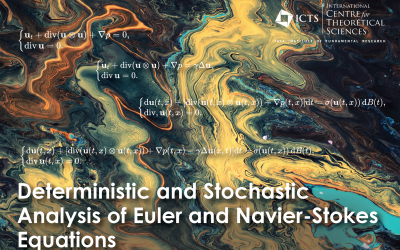All physical phenomena in areas such as physics, engineering, finance, and biology are inherently nonlinear and therefore described via models of nonlinear partial differential equations (PDEs). The Navier-Stokes and the Euler equations are thought to be the fundamental set of equations governing the motion of fluid flow. Recently, the research area related to fluid flow equations has witnessed multiple seminal new results and groundbreaking techniques. The main aim of the program is to bring in leading researchers from the field of fluid mechanics for an active discussion on these new techniques and exchange of ideas.
In his celebrated 1949 paper on statistical hydrodynamics Lars Onsager conjectured that the threshold regularity for the validity of energy conservation of weak solutions to Euler equations is the exponent 1/3. In particular he announced that for larger Hölder exponents any weak solution would conserve the energy, whereas for any smaller exponent there are solutions which do not conserve energy. The first proof of the later part of Onsager conjecture in a Hölder space was given by De Lellis and Szekelyhidi Jr. On the other hand, the existence of infinitely many weak solutions of the Navier-Stokes equations was provided by Buckmaster and Vicol. Furthermore, these techniques were extended by several authors to produce results for stochastic fluid flow equations.
Some of the important topics we wish to cover in this workshop includes full resolution of Onsager conjecture, intermittent construction for Navier-Stokes equations, H^{1/2} weak solutions of the incompressible 3D Euler equations, and stochastic convex integration method.
Eligibility criteria: PhD students, postdocs, and faculty members are all eligible to apply. Researchers working on the mathematical aspects of fluid flow equations will be given preference.
Accommodation will be provided for outstation participants at our on campus guest house.
ICTS is committed to building an environment that is inclusive, non discriminatory and welcoming of diverse individuals. We especially encourage the participation of women and other under-represented groups.
 icts
icts res
res in
in

